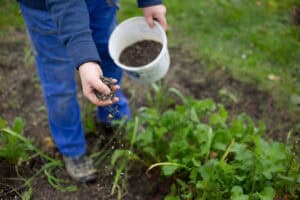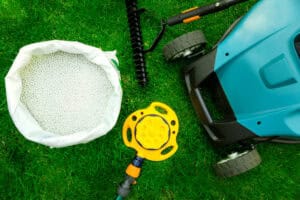It’s no secret that gardening has always been a popular hobby, even for those without a green thumb. But one of the main complaints among gardeners and farmers is whether to use fertilizers, or let nature take its course.
In order to culitvate your garden with beautiful new plants, this topic comes up all the time. Whether it’s rooftop gardens, vertical gardens, or even small container gardens on balconies, knowing about fertilization will help you cultivate your own green spaces.
Do Fertilizers Make Plants Grow Faster?
Does fertilizer improve plant quality? Yes, because they provide essential nutrients like nitrogen, phosphorus, and potassium (NPK) needed to grow healthy plants. They can also improve soil PH and increase the availability of micronutrients, such as iron and zinc. By using the right fertilizer for the specific plant species and soil type, you can optimize growth and yield.
What happens if you don’t fertilize plants? In natural ecosystems, growing plants absorb nutrients from the soil surface, relying on organic nutrients, minerals, and microbial activity to replenish the soil over time. Nutrient cycles in nature are self-sustaining, with decaying plant matter, animal waste, and natural processes maintaining a balance. In environments where this balance exists, most plants can grow without additional help from these supplements. However, many soils, particularly in agricultural lands, may lack sufficient nutrients for optimal growth, which is where fertilizers come into play.
Different Types of Fertilizers
There are two main types of feeding supplements: organic and synthetic. Organic fertilizers come from natural sources like compost, manure, or bone meal, while synthetic fertilizers are manufactured using chemical processes and contain concentrated amounts of nutrients. However, organics are messy to prepare and often release nutrients more slowly than their synthetic counterparts. This slower nutrient release can be a disadvantage for food gardeners looking for immediate results, as composts rely on microbial activity in the soil to break down the natural matter and make nutrients available to plants.
If you don’t want the hassle of organic fertilizer, you can use a mineral type instead. Mineral fertilizers are typically categorized by their nutrient composition, specifically the three macronutrients: nitrogen (N), phosphorus (P), and potassium (K) they contain. These three important nutrients are essential for various plant functions: nitrogen promotes healthy growth of leaves, phosphorus supports roots and flower development, and calcium and potassium strengthens overall plant health.
How Fertilizers Improve Soil Fertility
Plants depend on healthy soil to grow, and adding fertilizer plays a critical role in maintaining soil health. Fertility refers to the ability of soil to support plant development by supplying the necessary nutrients in the right amounts. Plants need a balanced diet of nutrients to develop, which fertilizers provide.
Over time, most soils can become depleted of key nutrients due to crop harvesting, leaching, and erosion. Fertilizers, whether organic or synthetic, replenish the specific soil nutrients needed to grow plants. For example, if your soil test reveals that it is lacking in nitrogen, you can apply fertilizer containing nitrogen to overcome this nutrient deficiency.
Certain fertilizers, such as compost and manure, not only provide nutrients but also improve soil structure by adding composted type organic matter. This, in turn, improves the soil’s ability to retain moisture and improves aeration when planting, which allows many plants roots to grow deeper. A well-structured soil encourages microbial activity and nutrient cycling, further enhancing the fertility of the soil.
Benefits and Drawbacks of Fertilizer Use
Applying fertilizer in proper amounts can help grow healthy crops, increase crop yields, and improve fertility. However, too much fertilizer can burn or desiccate roots, killing any growth. Artificial fertilizers can also have negative environmental impacts, such as water pollution and soil degradation. Natural fertilizers, on the other hand, can provide a more natural and sustainable approach to plant nutrition.
Choosing the Right Fertilizer
Selecting the right fertilizer is essential for ensuring optimal growth for vegetables, other plants, and for maintaining fertility of the soil. The decision on how to apply fertilizer depends on the following factors:
- Consider : Different plants have different nutrient requirements, so choose a mix formulated for your specific garden species.
- Look for supplements with a balanced NPK ratio: A balanced ratio of nitrogen, phosphorus, and potassium is essential for plant roots, healthy plant growth and garden development.
- Check the pH level: Some fertilizers are designed for acidic or alkaline soils, so ensure the pH level matches your soil type.



